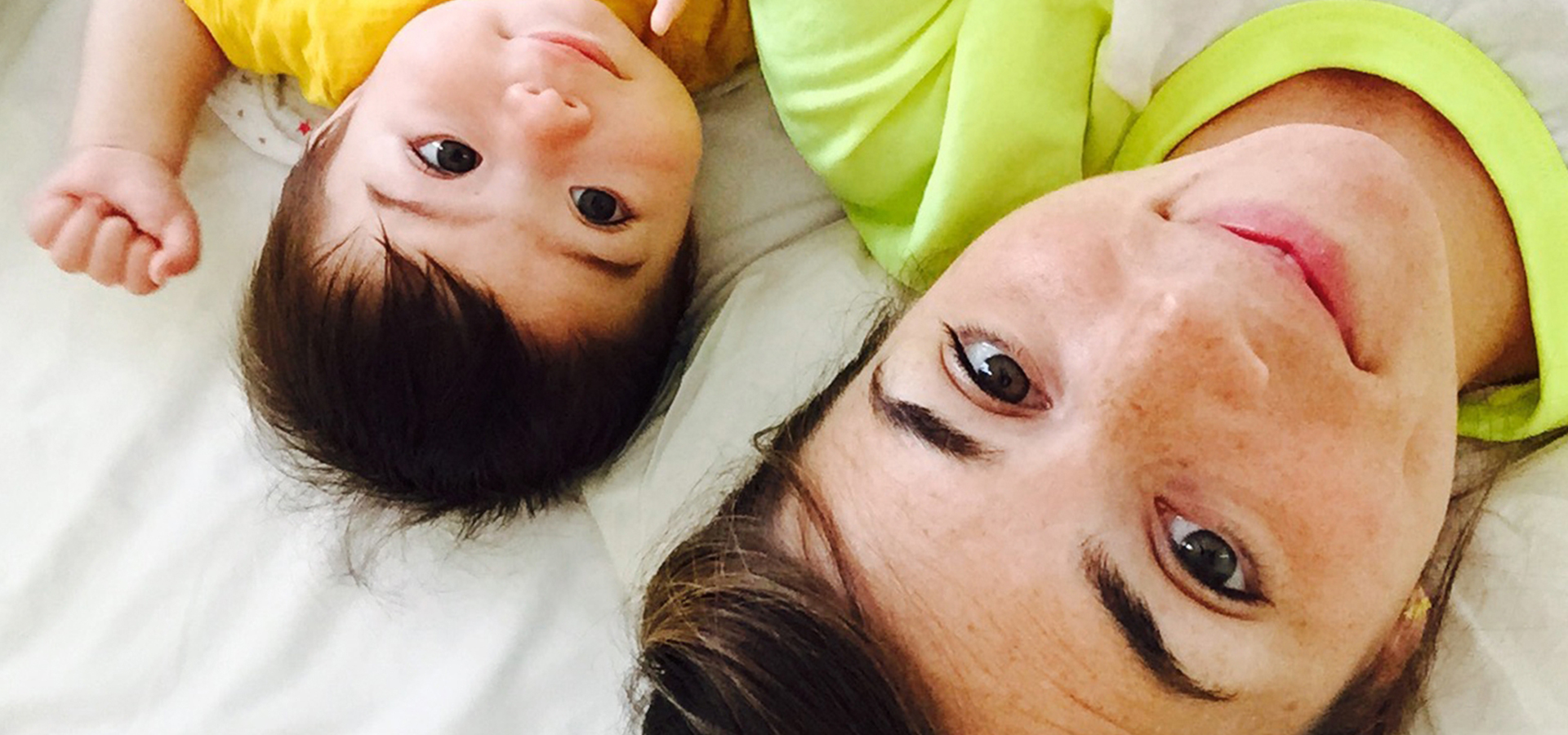
An Interview with Megan Pilla
An Interview with Megan Pilla; Chief Content Officer at Bulldog Drummond.
Emma King: What have been the major milestones in your career?
Megan Pilla: In the traditional sense I suppose there are two of them. The first was taking a night class at The Art Center College of Design as a pre-law student at Occidental College. To make a long story short, when I was in high school in London a representative from The Art Center came to visit our school and I thought, wow, super cool but I’m not an artist. Well, come to find out Occidental and Art Center had a partnership and so I took a free night class my first term out in California. After one class I was hooked. I took the next summer off, created a portfolio, applied and enrolled. The second milestone was about a year after I graduated. I had sent my work to a number of different shops with the goal of getting back towards my family on the East Coast—and New York preferably. One that called me back was Bulldog Drummond, which at the time was an advertising firm down in what I considered the vacation-only town of San Diego. I took a freelance job that I thought would last a few weeks but during my stint one of our first innovation projects came in and started the trajectory we’re on today. There’s probably no better place I could have landed, but I certainly didn’t know it at the time. As a person that doesn’t do a lot of forward planning, reflecting on these milestones reminded me how important it is to take opportunities when they present themselves. That means being open, flexible and willing to change as needed. Because as a night class and a freelance job show, sometimes your unexpected moves turn out to be your most significant.
EK: What’s the biggest hurdle you’ve overcome?
MP: The biggest hurdle I’ve ever faced is myself. I get the feeling that’s the same for a lot of us. While my conviction for something I believe in or have created is usually off the charts, I often struggle with having the same confidence in myself. To me, that’s meant needing to understand and manage my own self talk—to speak to myself with compassion, celebrate the things that I am good at and be gracious with things that just aren’t my bag. This is a process I work at it every day—and some days are definitely better than others. But honestly, with only one life to live, why not work hard to believe in the biggest version of ourselves?
EK: After so many years in the industry, how do you stay passionate about what you do?
MP: The work I do is so varied that it’s fairly hard to get bored. One day we’ll be working on creating a new generation of conservation and the next we’ll be helping turn around a 100-year old company. But I think we all have our moments where the grass is greener. One of the hardest challenges for consultants is the urge to build something of our own, since we spend every day building for other people. I’ve scratched this itch more than once by building new ideas of my own and scheming mini business plans. It’s been therapeutic for sure but incredibly hard work, and that’s why I say the grass is always greener. I get the luxury of dipping into companies to help on their most unique challenges and opportunities, then moving on to something else. No small details, no trenches, no years and years to make it work. Sometimes it just takes stepping back and appreciating that to reenergize and reinvigorate me. It also helps to work with a phenomenal team of people, and we have that at Bulldog Drummond. If I’m having a day where I need a little lift or am less than energetic, the people around me always help to draw me back in and spark new interest in the challenge at hand. Take aways? Find work that varies, surround yourself with great people and you’ll be hard pressed to fall too far out of love with what you’re doing.
EK: What inspires you?
MP: I have two kids and they’ve radically changed what inspires me. I don’t want them to look back and say “Mom, if you could have changed that 20 years ago, why didn’t you?” I think we’re all increasingly aware of how finite our time on this planet will be unless we significantly change our ways. It blows my mind that as a society we have to grapple with determining our own planetary fate and come face to face with fundamental choices that will determine our future. So what inspires me today? People making a positive difference in the world. And at a time where governments are doing less of this and religions have lost the sway they once had, I think all people and businesses must be a force for change. Whether it’s Patagonia’s complete commitment to the planet across every part of their business, Barnana upcycling bananas that would otherwise be discarded, or everyday people who are making, buying and saving differently—I’m inspired by people and businesses who are making the world a better place. There’s no more time for filling the shelves with useless stuff that will simply be discarded or creating anything that adds to the destruction of our land, water and atmosphere. Anything or anybody that’s addressing this challenge with optimism, passion and practical solutions inspires me. These are the people and businesses we should support and follow. And as we look to the future, that’s exactly where Bulldog Drummond will be spending our time—helping people do more good.
EK: What advice did you receive early in your career that has stayed with you?
MP: In college I had a teacher who made me question every single thing that I did. Honestly—even if he thought something I did was good on the first round, he wouldn’t have let on. No matter what I brought him he told me to think about it differently and do it again. As a person who’s highly dependent on external validation, I found this incredibly challenging and yet what it did for me was invaluable. My inclination is always to jump to the solution right away, but over the years I’ve cultivated the self-discipline to question myself. In fact, I’ve often heard that questioning ourselves is what makes humans so uniquely human—which is fascinating if you think about it. I’ve also been lucky enough to have a colleague who is possibly the best questioner I know—she always keeps me honest. (If you can find one of these people, consider yourself lucky.) And over the years I’ve learned that questioning—the process of working through an argument, deconstructing something and better understanding the depth of a challenge—is actually what makes solving a problem incredibly fascinating. You may end up with the same answer in the end, but through the journey the answer will be far richer.
EK: Can you tell me about a female role model who has inspired you over your career?
MP: Except for my mom, who’s responsible for much of who I am and kicks ass at life, I can’t tell you about a single role model probably because my brain just doesn’t organize things this way. But I have been lucky enough to grow up around, and work with, incredible women. And I’ve learned things from every single one. Grace. Tenacity. Leadership. Confidence. Humility. Balance. Softness. Priorities. Individuality. But what’s always stood out to me are women who own being women—women who bring to the table all that is great and good about being a woman. There’s a lot of it and it’s different from the great and good stuff that men bring. There’s a depth, soulfulness and care that I think is unique to us as women, and when these qualities become part of a business landscape, they can literally move mountains.
EK: What three skills do you think are essential to be a great leader?
MP: Gosh, this is a tough question. I think it all depends on the type of leader you are and the type of organization you’re leading. I’m not sure there’s any one answer. For me, I suppose it’s vision, conviction and compassion. Vision because knowing where you’re going and how you’re going to get there is essential. Conviction because shit is going to get in your way so you better be ready to fight the good fight. And compassion because at the end of the day it’s all about people. But ask me on another day, as the dynamics of our team and work change, and I’m sure my answer will be different. So maybe one more? Being fluid—responding to, and being in sync with, what’s needed at the time. And as the pace of life gets faster and faster, being fluid will probably become evermore important.
EK: Based on your own experience, what advice would you give to women considering pursuing a career as a Chief Creative and Content Officer?
MP: I didn’t set out to have this job title, I created it as I went. So, here’s what I’d say. Rather than pursuing a title or a job that already exists, I’d urge anybody interested in the business (or any business for that matter) to focus on what they’re passionate about and excellent at, and build a path that leads them to the fullest expression of that interest and skill. I don’t think the world needs more people who fill roles, but rather, people who create new opportunities because the world demands it. As AI increasingly becomes part of our everyday reality I think this demand for creativity and flexibility will only increase as we rapidly remake what it means to live and work with a new omnipresent digital force. And having a clear vision for what you can uniquely bring to the world will make you a valuable part of any team.
EK: If you could give any advice to a young woman in your industry what would it be?
MP: It’s going to sound trite but be your own unique self. I wasn’t a normal kid and I didn’t grow up in the usual circumstances. The senior yearbook quote given to me was “most likely not to conform”. I’ve had hobbies that range from ice climbing to hunting for edible mushrooms. My friends are an eclectic bunch collected from all different parts of my life who each inspire me in different ways. And I honestly have never believed that the rules apply to me (this has only occasionally backfired). It’s hard to find a consistent through line that makes sense—but it all comes together to make me who I am today. The most interesting people are the ones who don’t fit in boxes. They are the ones who surprise you and enliven you because they bring color to life. And they certainly bring the most to the game in our line of work. So be that person by being uniquely 100% you.
Read more from Emma.


Uncommon Person: Chad Hutson

Our Internal Learning & Impact at Bulldog Drummond

The One Decision by Employers in 2021 that Means Everything

What I Wish I Knew

Standing Up Inside

Uncommon Person: Gregg Imamoto

Five Things Every Company Should Know about ESG

Redefining Value

Uncommon Person: Chris Baréz-Brown

It’s Time For A Whole Lotta Common Good

Did You Choose Humanity?

Uncommon Partnership: Violux

Here’s How

Uncommon Person: Santhosh Nair

Designing Strategy For A Complex World

Responsibility & Relevance for Brands

